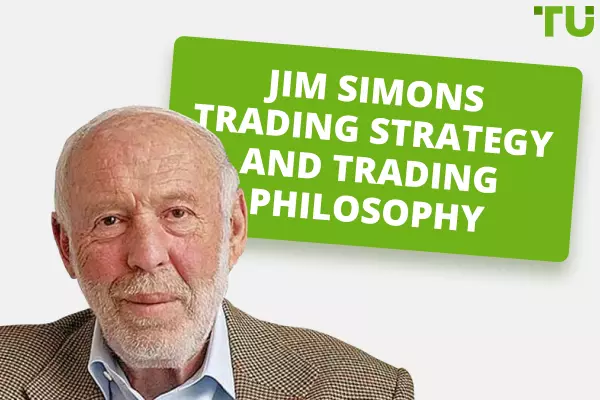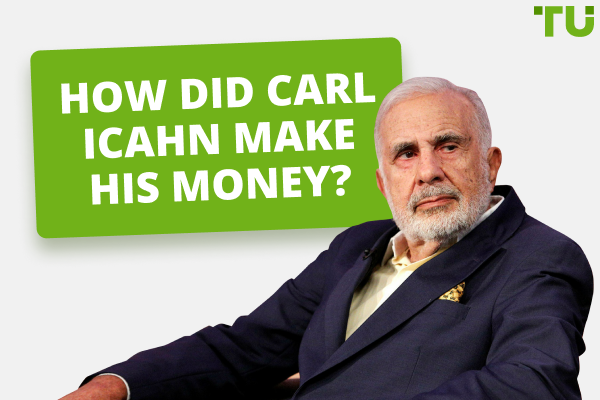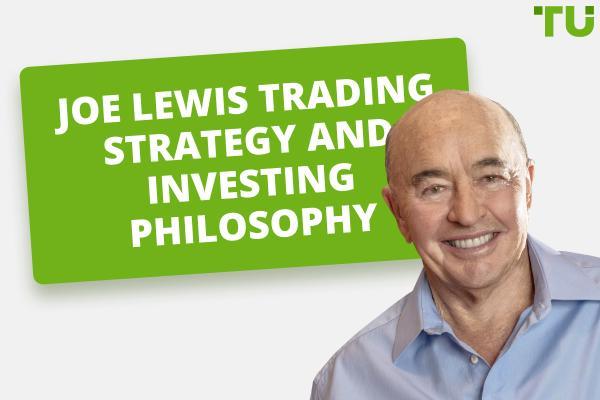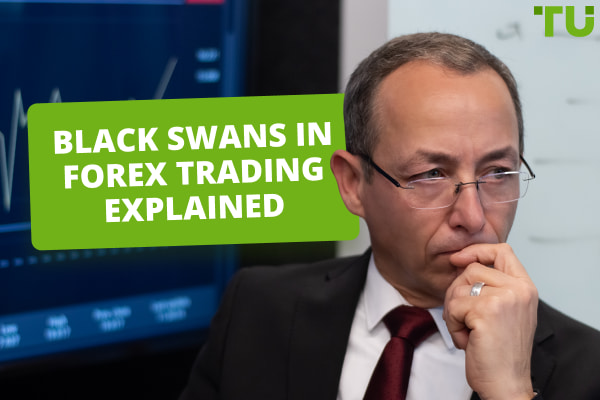World Richest Billionaire Traders
The 7 richest traders in the world:
-
1
Jim Simons, with a net worth of $28.10 billion
-
2
Ray Dalio, with a net worth of $19.10 billion
-
3
Steve Cohen, with a net worth of $17.52 billion
-
4
Carl Icahn, with a net worth of $7.10 billion
-
5
George Soros, with a net worth of $6.70 billion
-
6
Stanley Druckenmiller, with a net worth of $6.40 billion
-
7
Joe Lewis, with a net worth of $6.08 billion
The very best of traders figured out the exact skill set required to profit from the markets. By making timely and clever moves, they amassed a huge fortune. But just how much money are we talking about? In this article, the experts at TU will uncover the stories of these super-rich traders and discuss how they grew their wealth. For your better understanding, the experts have thoroughly examined their trading techniques to derive valuable insights that can benefit both seasoned traders and beginners alike.
Jim Simons

Jim Simons is a highly regarded American mathematician, hedge fund manager, and philanthropist, with an estimated net worth of approximately $28.1 billion.
In 1978, Jim Simons established a hedge fund named Monemetrics. During this time, he recognized the potential of applying pattern recognition to financial market trading. Consequently, he created a trading system incorporating quantitative models. By recruiting mathematicians, statisticians, and physicists, he went on to establish Renaissance Technologies and its flagship Medallion Fund in 1982. Jim Simons earned the title of the "Quant King" due to his exclusive reliance on quantitative analysis and algorithm-based investment strategies.
Although Jim Simons isn't known for any particular famous trades, his lasting success comes from the remarkable performance of the Renaissance Technologies' Medallion Fund. This fund, which most people couldn't invest in, consistently delivered outstanding returns. On average, it grew by about 66% each year from 1988 to 2018, even after taking fees into account.
Learnings from Jim Simons’ success
Jim Simons' key to success is his ability to change and make his trading strategies better when the market changes. Following the blueprint of his ideology, Renaissance Technologies always tries to improve its ways of doing things and adjusts to the market's changes. This shows how important it is to keep researching and finding new and better ways to trade using math and computer programs.
Traders can draw valuable lessons from Jim Simons, including the importance of data-driven decision-making, the potential of mathematical models and algorithms in finance, and the necessity of continuous learning and adaptation in the trading arena.
Best Forex brokers 2024

Ray Dalio

With a net worth of $19.1 billion, Ray Dalio is a well-known American investor, writer, and the founder of Bridgewater Associates – one of the world's biggest hedge funds. Bridgewater Associates, which manages assets totalling $124 billion, witnessed Ray retiring from his roles over the years. He stepped down as co-CEO in 2017 and later as chairman and co-chief investment officer in 2021 and 2022, respectively.
Ray Dalio's upbringing was in a middle-class neighbourhood on Long Island. He began dabbling in the financial markets at the young age of 12, learning from the investment tips of golfers he caddied for. In 1975, after completing his MBA at Harvard Business School, he launched Bridgewater from his two-bedroom apartment in New York City.
Even though Ray Dalio isn't famous for a single big trade, he gained fame for accurately predicting the 2008 financial crisis and profiting from it by betting against the housing market. This foresight brought significant profits to Bridgewater Associates.
Learnings from Ray Dalio’s success
Dalio's investment strategy and beliefs underscore the importance of diversification and risk management. He suggests building well-rounded portfolios that include various types of assets to reduce risks. His investment principles, detailed in his book "Principles: Life and Work", emphasize radical transparency, open-mindedness, and continuous learning.
Traders can gain valuable insights from Ray Dalio, such as the importance of using data and a systematic approach in investing, the significance of diversifying investments to manage risks, and the value of having guiding principles and beliefs in the financial world.
Steve Cohen

Steve Cohen is a well-known American investor and the founder of Point72 Asset Management. His estimated net worth is approximately $17.52 billion.
Cohen started his career as an investor by working as a trader at Gruntal & Co. During this time, his trading activities not only earned significant profits for the company but also for himself. Cohen then accumulated his wealth mainly through his hedge fund, SAC Capital Advisors, established in 1992. SAC Capital focused on trading stocks and other financial instruments, achieving remarkable success under Cohen's leadership.
Although Steve Cohen doesn't have a famous single trade to his name, his career is marked by consistently strong returns and successful trading strategies. His trading style combines fundamental analysis, a deep understanding of market sentiment, and technical indicators. Cohen is known for his discipline and careful selection of investments, often relying on a team of traders and analysts to gather insights.
Learnings from Steve Cohen’s success
Cohen's trading philosophy underscores the significance of thorough research, in-depth knowledge of companies and markets, and rigorous risk management. He is also known for his ability to adapt to changing market conditions and continuously refine his strategies. His willingness to cut losses and maintain objectivity in decision-making has played a vital role in his long-term success.
Traders can draw important lessons from Steve Cohen, including the importance of discipline, research, and effective risk management in the trading world. His career exemplifies the value of staying informed, adjusting to market shifts, and being open to reassessing your strategies when necessary.
Carl Icahn

With a net worth of roughly $7.10 billion, Carl Icahn is a prominent American investor, billionaire, and activist trader known for his aggressive approach to corporate restructuring. He stands out as one of Wall Street's highly accomplished investors, known for his long-lasting influence on corporate America. His main investment platform is the publicly traded Icahn Enterprises. Additionally, he manages an investment fund that combines his personal wealth with funds from Icahn Enterprises.
Carl Icahn used his poker winnings to fund his education at Princeton University. Following a brief stint in the military, he found his way to Wall Street. In 1968, Carl Icahn borrowed $400,000 from his uncle to acquire a seat on the New York Stock Exchange for his newly established brokerage firm, Icahn and Company. As he delved into the stock market, Icahn developed an interest in risk arbitrage, which involves buying stocks in anticipation of a takeover offer that drives up their value. This marked the start of his significant earnings, with annual incomes reaching as high as $2 million.
He also began taking positions in companies he believed were undervalued. When he identified a company with potential mismanagement issues, Icahn would buy shares and then leverage the threat of a takeover to persuade management to implement specific measures. In most of the cases, the company agreed to his demands. One of his most famous trades was his involvement with RJR Nabisco in the late 1980s, where he advocated for the company's breakup to increase shareholder value. Investors can learn from Icahn's focus on active involvement and unlocking hidden value in companies.
Learnings from Carl Icahn’s success
Although it might not be possible to replicate Icahn’s strategy for small traders, given the significantly high capital requirement, the importance of deciphering and analyzing market events to take trades can still be drawn. Other learnings traders can incorporate include working on one’s patience level, looking at the bigger picture by taking a long term view, and to not underestimate the power of business pricing.
George Soros

George Soros is a well-known Hungarian-American investor, philanthropist, and hedge fund manager with an estimated net worth of around $8.6 billion. He accumulated his wealth primarily through his successful career in hedge fund management. Soros is famous for his notable trade in 1992 when he famously "broke the Bank of England" by shorting the British pound, earning him approximately $1 billion in profits in a single day.
In 1969, George Soros established his initial hedge fund, originally named the Double Eagle. Using the earnings from this venture, he initiated another fund, Soros Fund Management, in 1970. Over time, Double Eagle evolved into the Quantum Fund. When Soros transitioned his hedge fund into a family office in 2011, he had achieved an impressive average annualized return of 20 percent over a span of more than four decades. His wealth accumulation can be attributed to his keen understanding of both local and global economic trends, his willingness to take calculated risks, and his remarkable intuition.
Learnings from George Soros’s success
Soros’s trading strategy and ideology are often associated with the concept of reflexivity. He believes that financial markets are influenced not only by economic fundamentals but also by the perceptions and beliefs of market participants. He points out that these perceptions can create self-reinforcing feedback loops, leading to market bubbles and crashes. Soros seeks to exploit these inefficiencies by closely monitoring market sentiment and fundamentals to identify mispriced assets.
Soros is also known for his philosophy of "risk management" and the principle of "cut your losses and let your profits run". He emphasizes the importance of setting predetermined exit points to limit losses and allow profitable positions to grow. This strategy helps protect capital and maximize returns over the long term.
Stanley Druckenmiller

With a net worth of about $6.4 billion, Stanley Druckenmiller is a famous American investor popular for managing the Quantum Fund for George Soros.
One of his most famous and profitable trades was when he and George Soros bet against the British pound in 1992. This caused the pound to lose a lot of value, and the UK had to leave a system called the European Exchange Rate Mechanism.
Druckenmiller is a top-down investor with a trading style similar to that of George Soros, which is holding a group of stocks long, a group of stocks short, and using leverage to trade futures and currency.
Learnings from Stanley Druckenmiller’s success
Druckenmiller emphasizes the importance of macroeconomic analysis and understanding the broader economic landscape. He believes in staying informed about economic trends, interest rates, and global events to make well-informed investment decisions.
Another crucial aspect of his approach is risk management. He stresses the need to manage risk effectively by carefully sizing positions and setting stop-loss orders to limit potential losses. Druckenmiller acknowledges that not every trade will be a winner, so it's essential to protect capital. To sum it up, Druckenmiller’s approach to trading can teach us that staying informed, managing risk, and being flexible are keys to success in the world of finance.
Joe Lewis

Joe Lewis is a British businessman and investor with an estimated net worth of roughly $6.08 billion. He is best known for accumulating his wealth through currency trading and various business ventures.
Lewis is the owner of the Tavistock Group, which has more than 200 assets spread across 13 different countries. Through Tavistock, he has a strong influence in the world of sports. He owns the Premier League soccer team Tottenham and has a stake in a U.K. pub operator called Mitchells & Butlers. Aside from sports, Lewis has invested in various other ventures. These include luxury club resorts, restaurants, hotels, and even an Australian agriculture company.
Like Druckenmiller, Lewis also became famous for his role in the 1992 Black Wednesday event when he teamed up with George Soros to bet against the British pound.
Learnings from Joe Lewis’s success
Lewis’s trading strategy involves understanding key economic factors and how people feel about the market. He is known for thinking long-term, being patient, and identifying undervalued assets. He also stresses quite a bit on the importance of diversification, and on the same lines, to diversify his trading portfolio, he owns and runs fancy properties in places like the Bahamas.
Readers can learn from Joe Lewis qualities such as Patience, thinking long-term, and spreading your investments around are important. His big currency trade shows that you can make a lot of money in financial markets, but it also shows that there are big risks. So, it's smart to do a lot of research, be careful with risks, and stay disciplined when you're dealing with money.
What is most important for trading success?
Trading success hinges on several factors, but perhaps none are as crucial as trading psychology. Your mindset, emotions, and mental discipline play pivotal roles in determining whether you'll thrive or stumble in the world of trading. Experts have broken down trading psychology in the following key points:
Controlling your feelings is crucial. Fear and wanting to make lots of money can make you make bad decisions. If you give in to these feelings, you might make quick and not well-thought-out trades, which can make you lose a lot of money
Having patience and being disciplined are very important. If you rush into trades without doing your homework, it can lead to problems. Successful traders wait for the right moments and stick to their well-thought-out plans
Risk management is fundamental. Protecting your capital is non-negotiable. Implement tools like stop-loss orders and diversification to safeguard your investments
Confidence is good, but too much confidence is risky. Believe in your plan, but also be ready to change if needed. Stop-loss orders
Continuous learning is key in the ever-evolving world of trading. Staying informed about market changes and refining your skills is a must
Avoid excessive trading; quality beats quantity. Use mental tools to stay focused and accept that you can't predict every market fluctuation
Maintaining composure during market volatility is vital. Emotional stability allows for clearer judgment and better decision-making
Expert Opinion
Deep and exacting research. Clever arbitrage techniques. Hyperfast algo execution. Sophisticated risk management.
These attributes come up again and again in descriptions of the trading world’s elite. But the real reason for their success is much more prosaic: dumb luck.
Why? Because secondary trading is symmetrical and zero sum in the aggregate.
For every Soros, there’s a Madoff. For every Icahn, a Meriwether.
For every Cohen, there’s a, well, a Cohen.
And when you peel back the lid and look at how these guys manage their businesses, you realize a lot of them shouldn’t be running hamburger stands. Ray Dalio? Stevie Cohen? They define dysfunctional management and their organizations reflect it. Remember the “bond king” Bill Gross? No amount of yoga could save him when rates began to climb.
So yes, be disciplined. Watch your risk management. Try to find arb axes that the zillion other traders out there have overlooked.
But remember, you're aspiring to join a group of people whom the street refers to, quite rightly as, “lucky fools”.
Summary
Learning from the success stories of these seven traders can provide invaluable insights for aspiring traders and investors seeking success in the financial markets.
Jim Simons underscores the power of quantitative analysis. Even individual traders can embrace data-driven decision-making and algorithmic strategies, potentially boosting their trading effectiveness.
Ray Dalio emphasizes diversification and risk management. Protecting capital through a diversified portfolio and employing risk management tools like stop-loss orders is essential.
Steve Cohen reminds us of the necessity of adaptability and discipline. Adjusting to changing market conditions while adhering to well-defined strategies is key.
Carl Icahn teaches us the importance of active involvement. While not everyone can engage with large corporations as he does, having a voice in the companies we invest in can enhance shareholder value.
George Soros reminds us of the significance of understanding market psychology. Recognizing that market perceptions and beliefs drive prices, traders should closely monitor crowd sentiment and factor it into their decision-making process.
Stanley Druckenmiller stresses the importance of macroeconomic analysis. Staying informed about broader economic trends can guide investment decisions effectively.
Joe Lewis highlights the value of diversification, patience and long-term thinking. Avoiding the allure of quick profits and instead seeking undervalued assets can lead to more sustainable success.
FAQs
Who is the most profitable trader in the world?
One of the most profitable traders in the world is George Soros, often recognized as "the man who broke the Bank of England". Soros was born in Hungary in 1930, survived the Holocaust, and later emigrated from the country. He is widely renowned and celebrated as one of the most prominent and famous traders globally, who profited as much as $1 billion in a single day from his Black Wednesday trade.
Who is the richest day trader in the world?
Jim Simmons holds the title of the wealthiest day trader, boasting a staggering net worth of $28.6 billion. He is an American hedge fund executive, generous philanthropist, and a billionaire. In 1988, he established Renaissance Technologies, a highly prosperous quantitative hedge fund, and has remained dedicated to quantitative investing and trading for more than forty years.
Who is a successful trader in history?
The Forex billionaire George Soros, often referred to as "the king of Forex trading" or "The Man Who Broke the Bank of England", unquestionably stands as one of the most exceptional traders in history.
How much does top day trader make?
The average annual salary for a Day Trader in the United States is reported to be approximately $116,895, equivalent to an hourly rate of $56. However, it's worth noting that Day Trader salaries can span a range from $68,000 to $198,000 per year.
Team that worked on the article
Chinmay Soni is a financial analyst with more than 5 years of experience in working with stocks, Forex, derivatives, and other assets. As a founder of a boutique research firm and an active researcher, he covers various industries and fields, providing insights backed by statistical data. He is also an educator in the field of finance and technology.
As an author for Traders Union, he contributes his deep analytical insights on various topics, taking into account various aspects.
Dr. BJ Johnson is a PhD in English Language and an editor with over 15 years of experience. He earned his degree in English Language in the U.S and the UK. In 2020, Dr. Johnson joined the Traders Union team. Since then, he has created over 100 exclusive articles and edited over 300 articles of other authors.
The topics he covers include trading signals, cryptocurrencies, Forex brokers, stock brokers, expert advisors, binary options. He has also worked on the ratings of brokers and many other materials.
Dr. BJ Johnson’s motto: It always seems impossible until it’s done. You can do it.
Mirjan Hipolito is a journalist and news editor at Traders Union. She is an expert crypto writer with five years of experience in the financial markets. Her specialties are daily market news, price predictions, and Initial Coin Offerings (ICO). Mirjan is a cryptocurrency and stock trader. This deep understanding of the finance sector allows her to create informative and engaging content that helps readers easily navigate the complexities of the crypto world.











